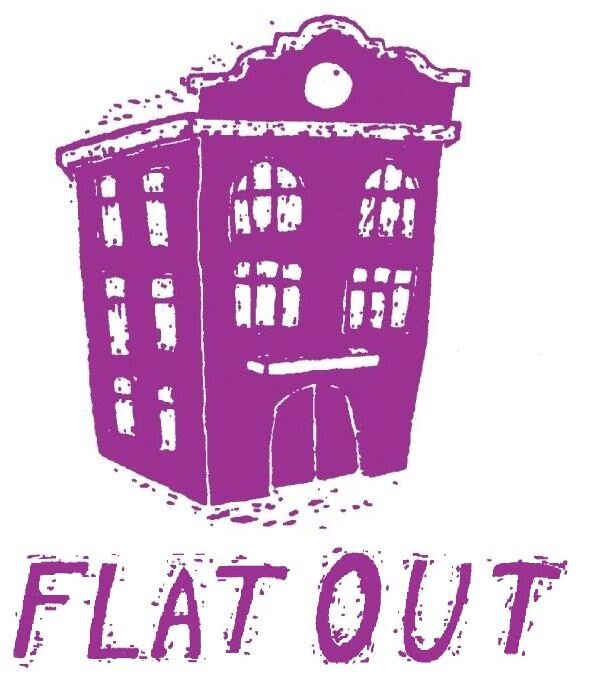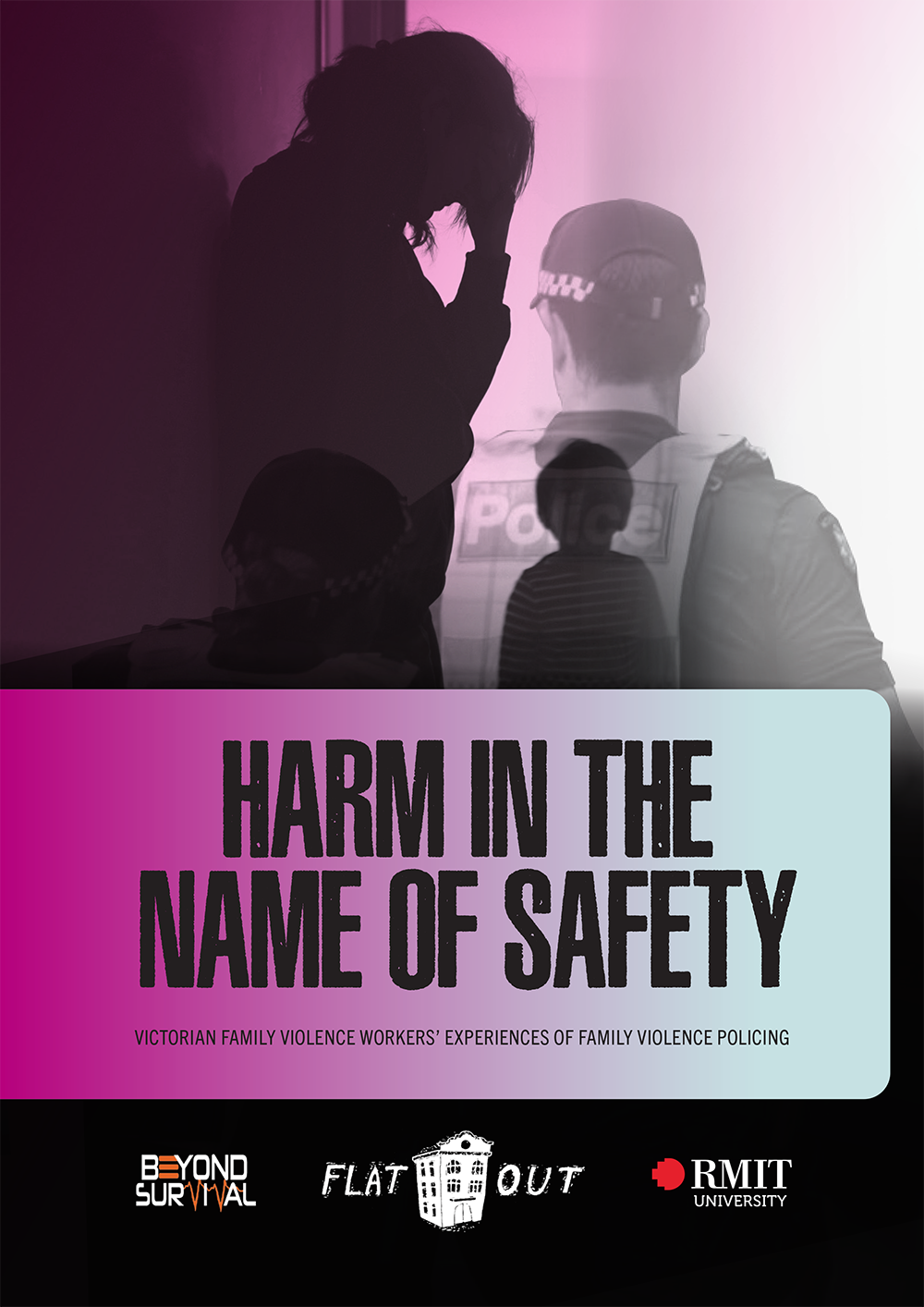
Harm in the Name of Safety: 225 frontline workers reveal police responses harming family violence survivors
Harm in the Name of Safety
Harm in the Name of Safety is a damning research report into the harms enacted in the course of family violence policing, released today by the Beyond Survival Project, Flat Out and RMIT University.
The research documents evidence from 225 Victorian frontline workers about their experiences of police responses to family violence. It finds that harmful family violence policing practices are extremely frequent and widespread across the state, and that alternative community-based response pathways for victim-survivors are urgently needed.
The report details extensive examples of police minimising and dismissing family violence, engaging in racially targeted, sexist and discriminatory police practices, colluding with perpetrators in ways that extend violence and abuse, and misidentifying victim-survivors as perpetrators. It also shows that many workers have witnessed cases of police-perpetrated family violence as well as widespread institutional protection of, and collusion with, offices who are abusive.
Police extending the harm by criminalising victim-survivors and/or colluding with abusers
Without direct prompting, 65% of participants raised concerns about police practices which extend the abuse of, or harm to, people experiencing violence, including by criminalising victim-survivors or colluding with perpetrators.
Biased and discriminatory policing
When directly asked about discriminatory policing, a massive 90% of workers said they had encountered some sort of police discrimination or bias in family violence responses, including on the basis of race, gender, sexuality, disability, and mental health.
“Misidentification” - Police wrongfully identifying people experiencing violence as abusers
Police misidentification of victim survivors as perpetrators was also identified by workers as a key harm, with 83% having witnessed it in the past five years, and two thirds of those having seen it happen five times or more during this time. Workers also described the intransigence of police to remedy cases of wrongful identification, even when presented with clear evidence, and documented the devastating cascading impacts this has for victim-survivors and their children.
Police-perpetrated family violence
The report also found that police-perpetrated family violence is a significant issue, with more than half (51%) of participants reporting having encountered it, and almost a quarter of those having encountered it five or more times. Workers described the additional dangers and hardships faced by those experiencing police perpetrated family violence, given the additional powers, weaponry and surveillance systems police perpetrators have at their disposal, and the institutional protection and collusion that they are frequently offered.
The extent and detail of harms provided in worker testimony across the report, shows that harmful family violence policing practices are not isolated events, cases of ‘bad apples’ or mistakes due to a lack of education or training, but are common practices, driven by deep structural and cultural issues in policing as an institution.

“Police often do not look at the perpetrator’s history and pattern of violence and will believe them [the perpetrator] because they come across as clear and controlled compared to the victim-survivor who is terrified and may be acting erratically.”
Calls for a fundamental re-think
The report calls for an urgent decentring of police from family violence response work, through the creation of alternative first responder models, strengthening and extending of community-based support services, and investment in non-carceral violence prevention and accountability initiatives.
It also calls for immediate action to:
restrain the harms of police-perpetrated family violence
abolish self-investigative police complaints processes
mandate reporting of police data on family violence policing harms,
resource services supporting people who are harmed by police responses
pilot a community-based first responder model
establish a community-led truth-telling inquiry into the harms of family violence policing.
Overall, the findings show that rather than supporting people who experience family violence and enhancing safety and autonomy, too often police responses extend the violence, amplifying risk, harm and trauma The report therefore fundamentally challenges the notion that police can or should be considered a site of safety for people experiencing family violence.

“If [police perpetrated family violence is] reported, it will be dismissed, [with victim-survivors] being told they won’t be believed. It’s a ‘boy[s’] club and they will look after their own [so the] woman feels isolated and powerless.”


